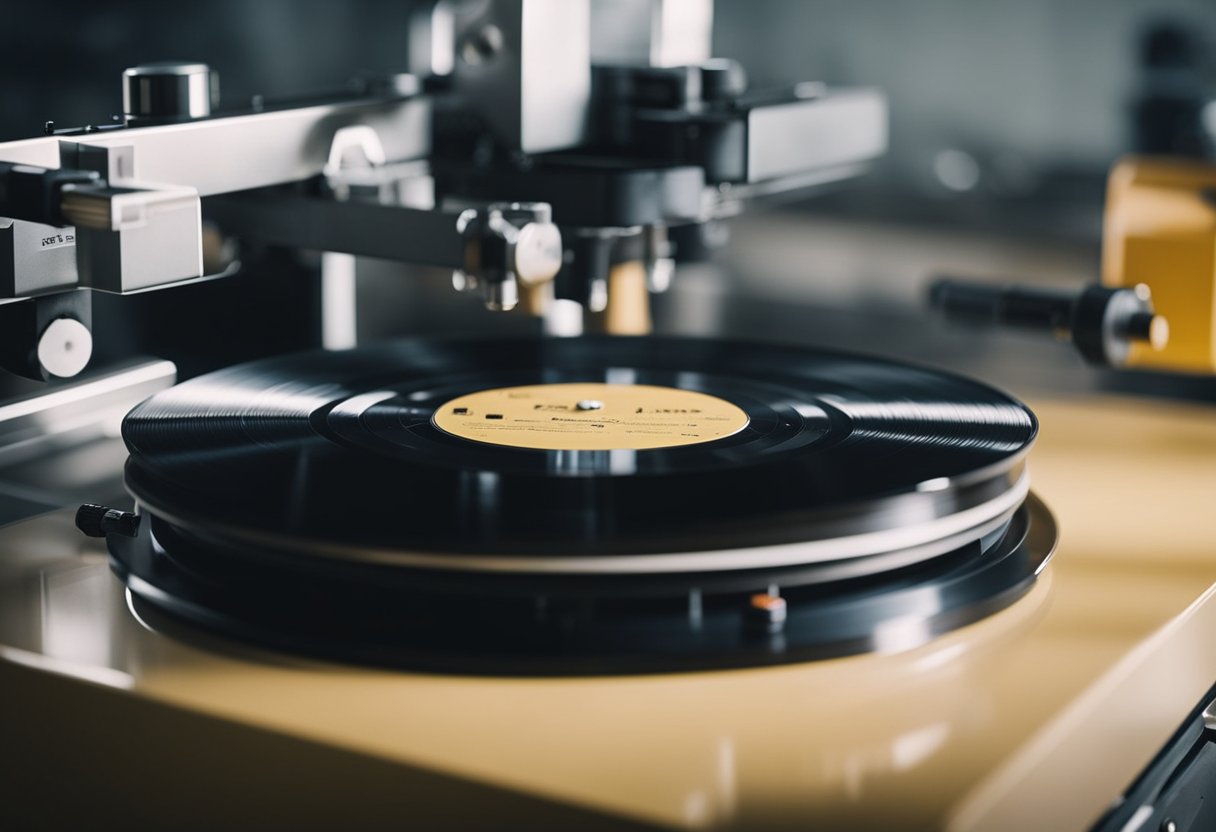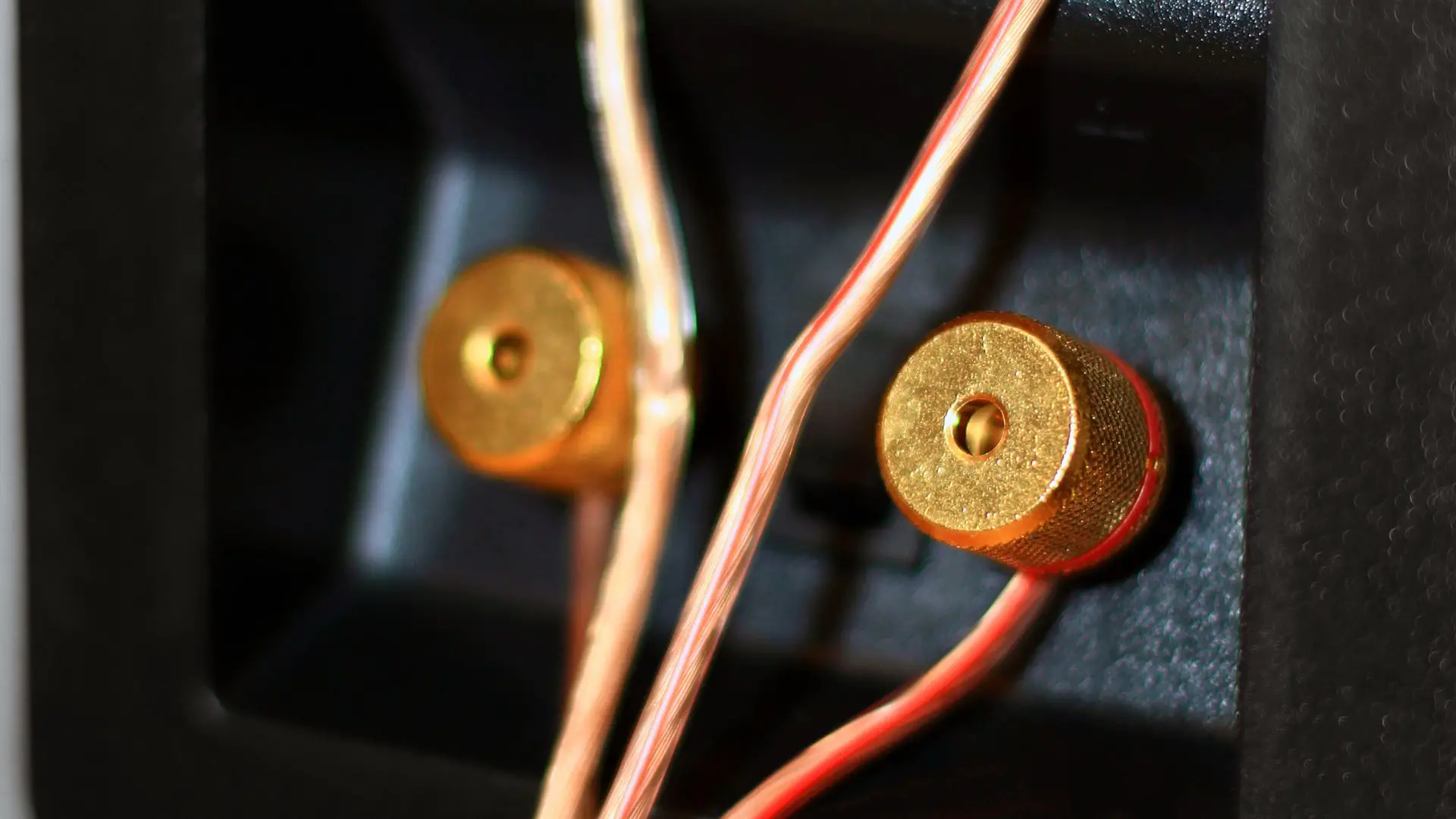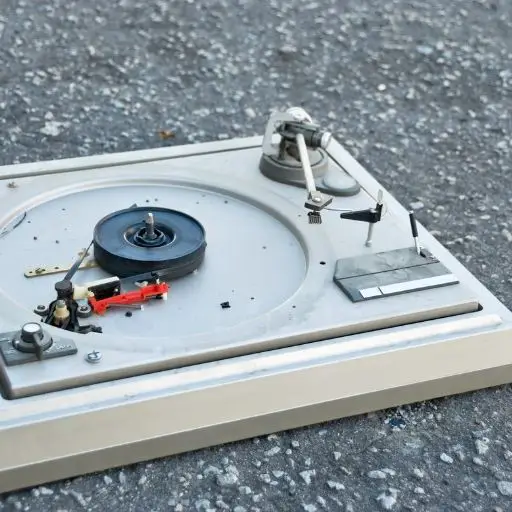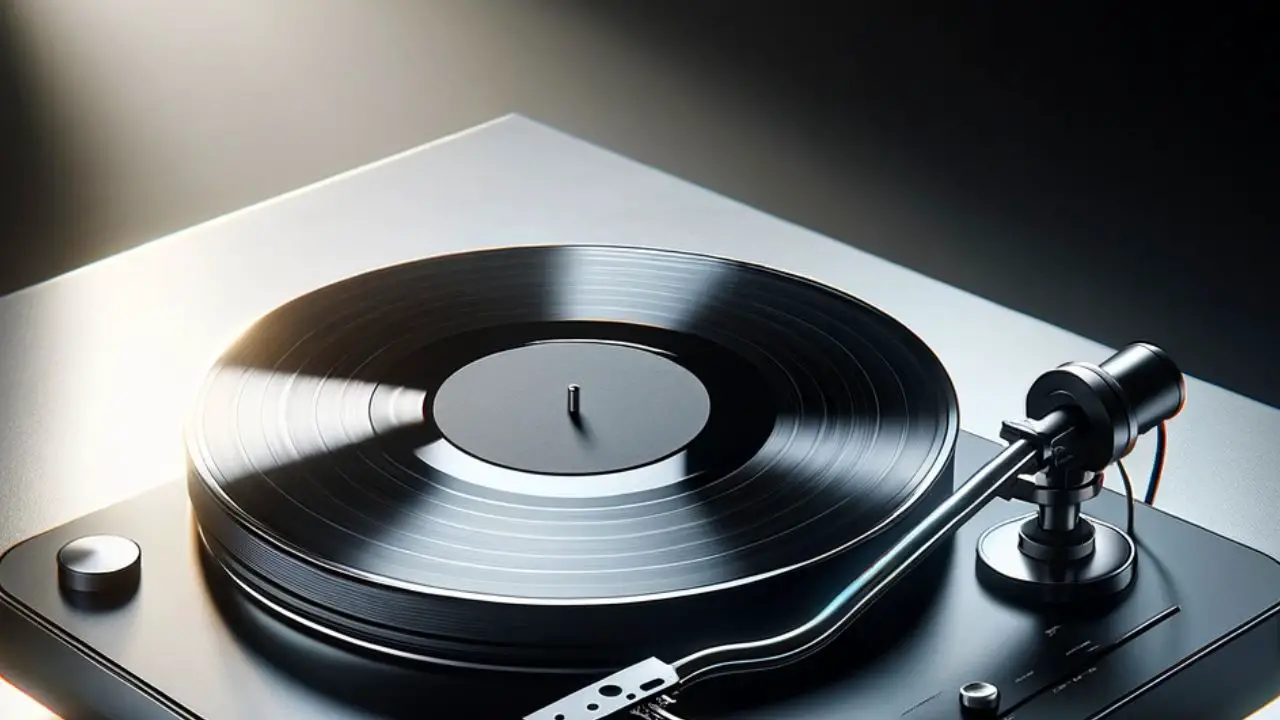If you’re an avid vinyl collector, you know how important it is to keep your records clean. Dust, dirt, and other debris can get into the grooves and affect the sound quality of your favorite albums. While there are plenty of commercial vinyl cleaning solutions available, they can be expensive and often contain harsh chemicals that can damage your records over time. Luckily, there are plenty of DIY vinyl cleaning solutions that you can make at home using simple ingredients.
One of the most popular DIY vinyl cleaning solutions is a mixture of distilled water, isopropyl alcohol, and dish soap. This combination helps to break down dirt and grime while also disinfecting your records. Simply mix the ingredients together in a spray bottle and apply to your records using a microfiber cloth. Be sure to wipe in the direction of the grooves to avoid causing any damage.
Another effective vinyl cleaning solution is a mixture of white vinegar and distilled water. Vinegar is a natural disinfectant and can help to remove dirt and grime from your records. Mix equal parts vinegar and water in a spray bottle and apply to your records using a microfiber cloth. Again, be sure to wipe in the direction of the grooves to avoid causing any damage. With these simple DIY vinyl cleaning solutions, you can keep your records sparkling clean and sounding great for years to come!
Why Clean Your Vinyl Records?

If you’re a vinyl enthusiast, you know how important it is to keep your records clean. Here are some reasons why:
Better Sound Quality
Dirt, dust, and grime can build up on your records, causing pops, clicks, and other unwanted noise. Cleaning your records regularly can help ensure that you’re getting the best possible sound quality from your vinyl collection.
Longer Lifespan
Vinyl records are delicate and can easily become damaged if they’re not cared for properly. Regular cleaning can help prevent scratches, warping, and other types of damage that can shorten the lifespan of your records.
Protect Your Equipment
Dirty records can also damage your turntable’s needle and other components. By keeping your records clean, you can help protect your equipment and ensure that it lasts longer.
Preserve Your Collection
Finally, cleaning your records can help preserve your collection for years to come. Over time, dirt and dust can cause your records to degrade, making them unplayable. By cleaning them regularly, you can help ensure that your collection stays in great condition for future generations to enjoy.
Cleaning your vinyl records is an essential part of being a vinyl enthusiast. By taking the time to care for your records properly, you can enjoy better sound quality, longer-lasting records, and a collection that will stand the test of time.
Necessary Materials for DIY Vinyl Cleaning

To make your own vinyl cleaning solution, you will need a few basic materials. Here is a list of the necessary items:
1. Distilled Water
Distilled water is essential for making your own vinyl cleaning solution. Tap water contains minerals and impurities that can leave residue on your records, affecting their sound quality. Distilled water is free of these impurities and is the best option for cleaning vinyl records.
2. Isopropyl Alcohol
Isopropyl alcohol is a common ingredient in DIY vinyl cleaning solutions. It is a powerful solvent that can remove dirt, dust, and grime from your records. However, it is important to use a high-quality, pure isopropyl alcohol to avoid damaging your records.
3. Microfiber Cloths
Microfiber cloths are gentle on vinyl records and are the best option for cleaning them. They are soft and won’t scratch or damage your records. You will need several microfiber cloths for cleaning your records.
4. Spray Bottle
A spray bottle is necessary for applying your vinyl cleaning solution to your records. You will want to use a high-quality spray bottle that won’t leak or break.
5. Record Cleaning Brush
A record cleaning brush is essential for removing dirt and dust from your records. You will want to use a soft brush that won’t scratch or damage your records.
6. Record Cleaning Solution
You can make your own record cleaning solution using distilled water and isopropyl alcohol, or you can purchase a pre-made solution. Look for a solution that is specifically designed for vinyl records and won’t damage them.
By having these necessary materials on hand, you can create your own DIY vinyl cleaning solution and keep your records looking and sounding their best.
Safety Precautions

When cleaning your vinyl records, it’s important to take certain safety precautions to ensure that you don’t damage the records or harm yourself. Here are a few tips to keep in mind:
- Avoid harsh chemicals: While it might be tempting to use strong chemicals to clean your records, they can actually do more harm than good. Avoid using any cleaning solutions that contain bleach, ammonia, or other harsh chemicals that can damage the vinyl or leave residue on the record.
- Be gentle: Vinyl records are delicate, so it’s important to handle them with care. When cleaning your records, use a soft cloth or brush and avoid applying too much pressure. Scrubbing too hard or using abrasive materials can scratch the record and damage the grooves.
- Protect your hands: Some cleaning solutions can be harsh on your skin, so it’s a good idea to wear gloves when handling them. Latex gloves are a good option, but be sure to avoid any gloves that contain talcum powder, as this can leave residue on the record.
- Avoid excess moisture: While it’s important to keep your records clean, it’s also important to avoid getting them too wet. Excess moisture can seep into the grooves of the record and cause damage. When cleaning your records, use a light touch and avoid applying too much cleaning solution or water.
- Store your records properly: After cleaning your records, be sure to store them properly to avoid damage. Keep them in a cool, dry place away from direct sunlight and avoid stacking them too tightly, as this can cause warping.
You can ensure that your vinyl records stay in great condition and continue to provide you with high-quality sound for years to come.
DIY Vinyl Cleaning: Basic Soap and Water Method
If you’re looking for a simple and effective way to clean your vinyl records, the basic soap and water method is a great option. This method is gentle on your records and won’t damage the grooves, ensuring that your vinyl sounds as good as new.
Step-by-Step Guide
Here’s how to clean your vinyl records with the basic soap and water method:
- Start by filling a bowl or sink with warm water.
- Add a few drops of mild dish soap to the water and mix well.
- Place the vinyl record in the water and gently swirl it around, making sure to avoid getting the label wet.
- Use a soft-bristled brush to gently scrub the record in a circular motion, working from the center outwards.
- Rinse the record thoroughly with clean water, ensuring that all soap residue is removed.
- Dry the record with a soft, lint-free cloth, using a circular motion to remove any remaining moisture.
Tips and Tricks
Here are some tips to help you get the best results with the basic soap and water method:
- Use distilled water if possible, as tap water can contain minerals that may leave residue on your records.
- Avoid using hot water, as it can warp your vinyl.
- Always handle your records by the edges to avoid getting fingerprints on the grooves.
- Use a record cleaning brush to remove any dust or debris before cleaning your records with the basic soap and water method.
- If your records are particularly dirty, you may need to repeat the cleaning process several times to remove all dirt and grime.
DIY Vinyl Cleaning: Alcohol-Based Solution
Vinyl records are a great way to listen to music, but they require special care to keep them in good condition. One of the best ways to clean vinyl records is to use an alcohol-based solution. In this section, we will discuss how to make an alcohol-based solution and provide some tips and tricks for cleaning your vinyl records.
Step-by-Step Guide
Here is a step-by-step guide to making and using an alcohol-based solution for cleaning vinyl records:
- Gather your supplies. You will need distilled water, high-purity isopropyl alcohol (at least 99% pure), and a mild dishwashing detergent.
- Mix the solution. In a clean container, combine distilled water and high-purity isopropyl alcohol in a 4:1 ratio. Add a drop or two of mild dishwashing detergent and mix well.
- Apply the solution. Apply a small amount of the solution to a microfiber cloth or a record cleaning brush. Do not apply the solution directly to the record.
- Clean the record. Gently wipe the record in a circular motion, following the grooves. Do not apply too much pressure as this can damage the record.
- Rinse the record. Rinse the record with distilled water to remove any remaining solution.
- Dry the record. Gently dry the record with a microfiber cloth or let it air dry.
Tips and Tricks
Here are some tips and tricks for cleaning vinyl records with an alcohol-based solution:
- Use a record cleaning brush. A record cleaning brush with soft bristles can help remove dirt and dust from the grooves of the record.
- Avoid using paper towels. Paper towels can scratch the record and leave behind fibers.
- Clean your hands. Make sure your hands are clean before handling the record to avoid transferring dirt and oils to the record.
- Use distilled water. Distilled water is free of minerals and other impurities that can damage the record.
- Store your records properly. Store your records upright in a cool, dry place to prevent warping and damage.
DIY Vinyl Cleaning: Wood Glue Method
If you’re looking for a deep-cleaning solution for your vinyl records, the wood glue method might be just what you need. This method involves using a layer of wood glue to remove dirt and debris from the grooves of the record, leaving it sparkling clean and sounding great. Here’s how to do it.
Step-by-Step Guide
- Start by laying the record flat on a clean, dry surface. Make sure it is free from dust and debris.
- Apply a layer of wood glue to the surface of the record. Use a brush or applicator to spread the glue evenly over the entire surface, making sure to cover the grooves of the record.
- Let the glue dry completely. This can take anywhere from a few hours to a full day, depending on the temperature and humidity in your home.
- Once the glue is completely dry, carefully peel it off the surface of the record. The glue should come off in one piece, taking all the dirt and debris with it.
- Use a soft, lint-free cloth to remove any remaining glue residue from the surface of the record.
- Finally, use a carbon fiber brush or other soft brush to remove any remaining dust or debris from the grooves of the record.
Tips and Tricks
- Be sure to use a high-quality, clear-drying wood glue for this method. Some brands of glue may leave a residue or discoloration on the record.
- Don’t use too much glue. A thin, even layer is all you need to clean the record effectively.
- Be patient. Letting the glue dry completely is essential for this method to work properly.
- If you’re having trouble removing all the glue residue from the surface of the record, try using a small amount of isopropyl alcohol on a soft cloth.
- This method is best for deep-cleaning records that are particularly dirty or grimy. For routine cleaning, a simple record cleaning solution or a carbon fiber brush may be all you need.
Maintaining Your Vinyl Records After Cleaning
Now that you’ve cleaned your vinyl records with one of the DIY solutions, it’s important to maintain them to ensure they continue to sound great. Here are a few tips to help you keep your records in top condition:
- Store your records properly: Keep your records upright in a cool, dry place, away from direct sunlight and heat sources. Use record sleeves to protect them from dust and scratches.
- Handle your records with care: Always handle your records by the edges or the label to avoid getting fingerprints or oils on the playing surface.
- Clean your record player: Regularly clean your record player to remove any dust or debris that may have accumulated. Use a soft cloth or a carbon fiber brush to gently clean the stylus.
- Avoid overplaying your records: Overplaying your records can cause wear and tear, so it’s important to rotate your collection and give each record a break.
- Keep your turntable level: Make sure your turntable is level to prevent uneven wear on your records.
Conclusion
In conclusion, cleaning your vinyl records is an essential step in maintaining their quality and longevity. With the right tools and ingredients, you can create a DIY vinyl cleaning solution that is effective and safe for your records.
Remember to always use distilled water and avoid tap water, which can contain minerals and other impurities that can damage your records. Additionally, be careful when using surfactants and other cleaning agents, as they can leave residue on your records if not properly rinsed off.
When cleaning your records, use a soft-bristled brush or cleaning pad to gently remove dust and debris, and always wipe in the direction of the grooves. Avoid using abrasive materials or excessive pressure, as this can cause scratches and other damage to your records.
Overall, taking the time to clean your vinyl records will not only improve their sound quality but also help them last for years to come. Whether you prefer a simple water and alcohol solution or a more complex homemade recipe, there are plenty of options available to suit your needs. So go ahead and give your records the cleaning they deserve, and enjoy the sparkling sound of your favorite tunes.




